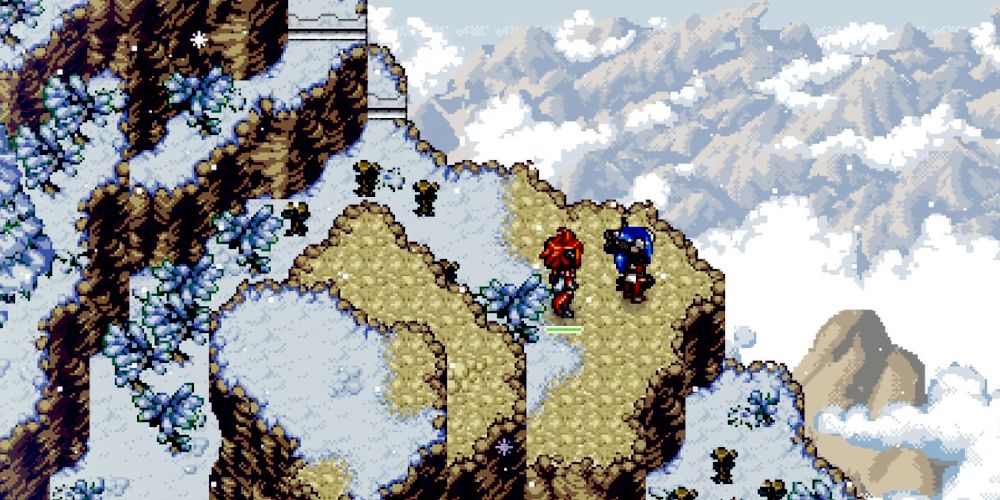The idea of placing a game within another game isn't new, nor is the idea of setting a single-player game within what is ostensibly supposed to be a massively multiplayer online role playing game.
The .hack series has been doing this since 2002. CrossCode, however, is somewhat different as its also a love letter to SNES-era RPGs.
CrossCode was released for PC, Mac, and Linux in 2018, but console ports took a few years. After playing a few hours, I decided to wait as CrossCode seemed like a perfect game for the Nintendo Switch. Was it worth the wait?
The Good
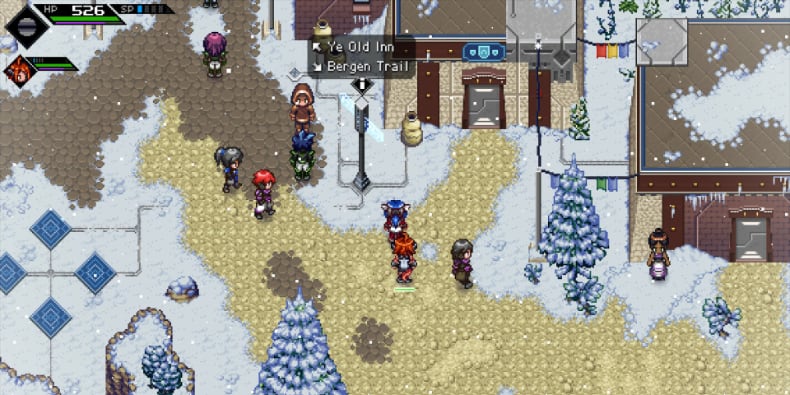
There is no shortage of games with faux 16-bit graphics out there, whether from independent developers or bigger names. Most of them look good, but CrossCode doesn't. It looks great.
Everything from the environment design to the animation is top-notch, reminiscent of the very best the 16-bit era had to offer. Granted, a SNES or Genesis might not have been able to pull off the hardware trickery required to make these graphics work at the time, but they still look close.
The overall look of CrossCode makes me think of games like Final Fantasy VI or Chrono Trigger where you wonder how the developers made things happen with the SNES hardware that others seemingly couldn't pull off.
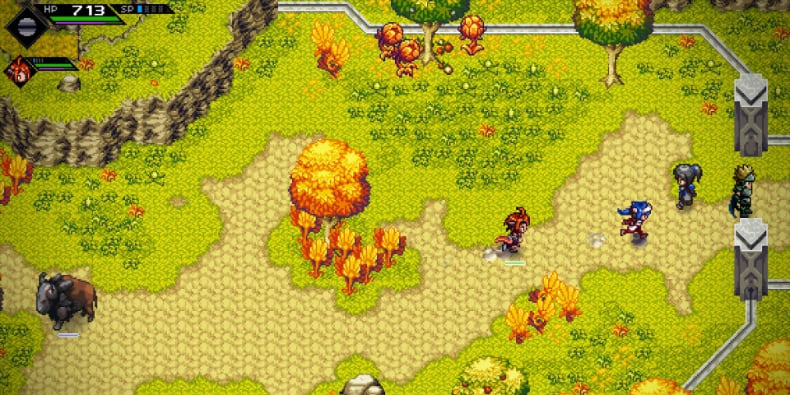
The story is interesting, and it's well told through a mix of dialog that happens during gameplay and more static cut scenes.
That said, it's slow moving at times and it takes a little while to get going. After the story picks up the pace, it also gets much more gripping.
A defining point of CrossCode's main character Lea is that her speech function within "CrossWorlds," the game within the game, is faulty.
Her programmer ally, Sergey, is helping her from outside the game and can add to her speech function, but only manually and slowly. This means that Lea's vocabulary is extremely limited.
The writing takes advantage of this very well, with Lea's limited dialog providing a surrogate for the player's limited knowledge of what's happening within the game.
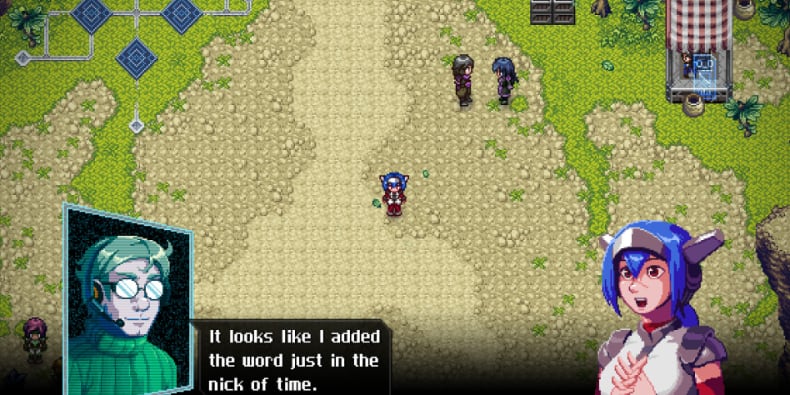
This wouldn't mean much if the gameplay came up lacking, but that isn't the case. While during your first hour with CrossCode, the combat might feel somewhat simplistic, it's anything but.
As you progress through the game you open up new abilities and combat techniques that let you adapt the gameplay to how you prefer to play.
The game's Circuit upgrade system takes this even further. You'll start from a center point, allocating points toward Attack, Max HP, Focus, or Defense.
Things branch further from here. You can either stick toward one direction or fill a few out, building a more generalized character. The more you play, the more you can tweak the combat to your liking.
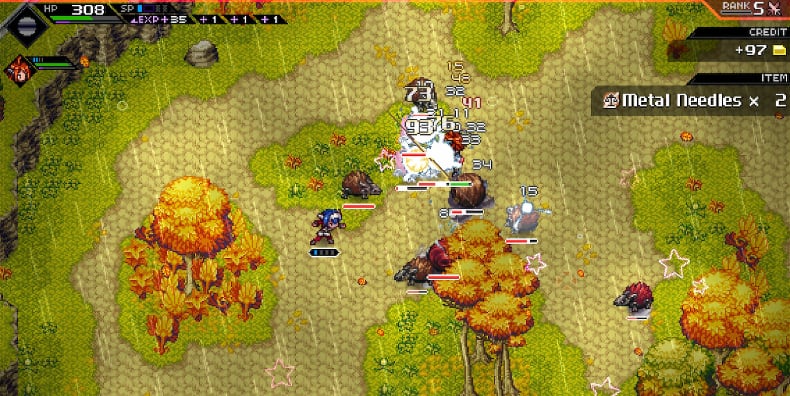
It's not all about combat though. CrossCode's designers obviously love puzzles, because the game is packed with them. This lends the game, which otherwise feels like an Action RPG, a somewhat Zelda-adjecent feel, albeit only during those moments.
The Bad
If there's a major issue with CrossCode, it's that sometimes it's a little too close to the MMOs it draws on for inspiration.
When Sergey comments how odd it is that every quest giver in CrossWorlds is giving Lea fetch quests, it's funny. It isn't quite as funny when you actually have to go do those very fetch quests.
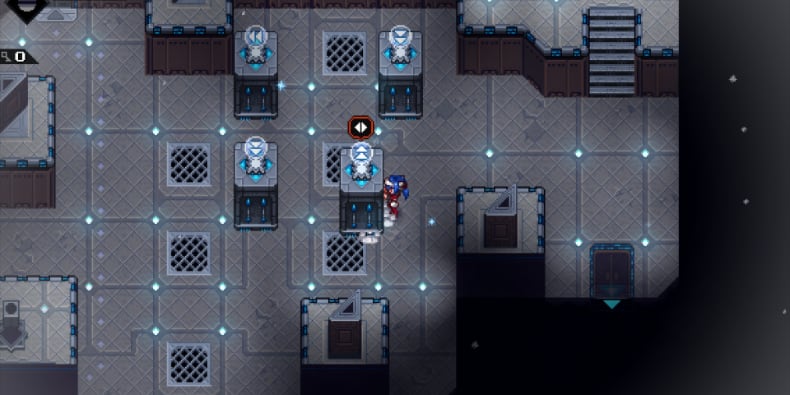
Granted, it's possible to ignore side quests, and only very patient players are going to bother with all of them.
Still, many of these quests grant useful gear and experience to help you make quick work of the game's tougher enemies. It just would have been nice if there was a little more story or variety attached to these quests.
The only other issue is performance. As mentioned above, I waited to play CrossCode on the Nintendo Switch, as it seemed like an ideal platform for the game, and it is.
You'll just encounter some slowdown from time to time. Fortunately, this isn't as bad as it could be.
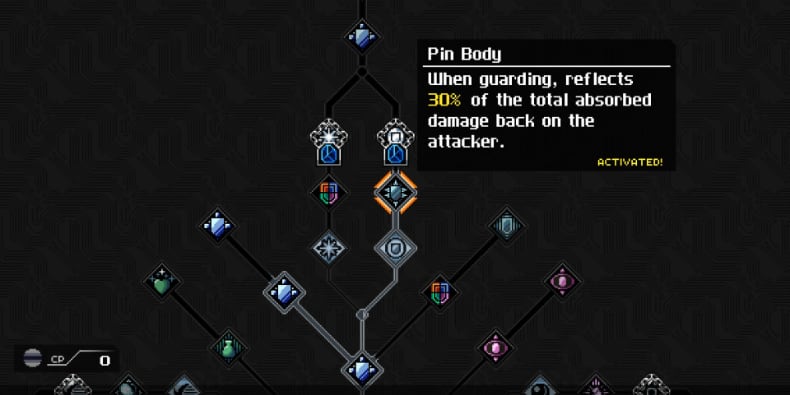
Somewhat strangely, the main slowdown comes in the menus. The main overview comes up quickly, but select a sub-menu like Quests or Equipment and you'll have to wait a second or two while the next menu loads.
There are minor slowdown issues in the overworld from time to time, but nothing that I ever noticed impacting gameplay.
The Verdict
I love the idea of a game that could have been made on much older technology, but with influences from much more modern games.
These games are often novel, but in the case of CrossCode, the gameplay and the aesthetic work so well together that I can't imagine this game any other way. Considering the small team behind CrossCode, it's even more impressive.
You'll encounter some uneven pacing and the occasional slow side quests, but at a $20 price tag, CrossCode is worth it for any RPG fan looking for something a little different. If it keeps you from paying MMO subscription fees, it may even pay for itself.
